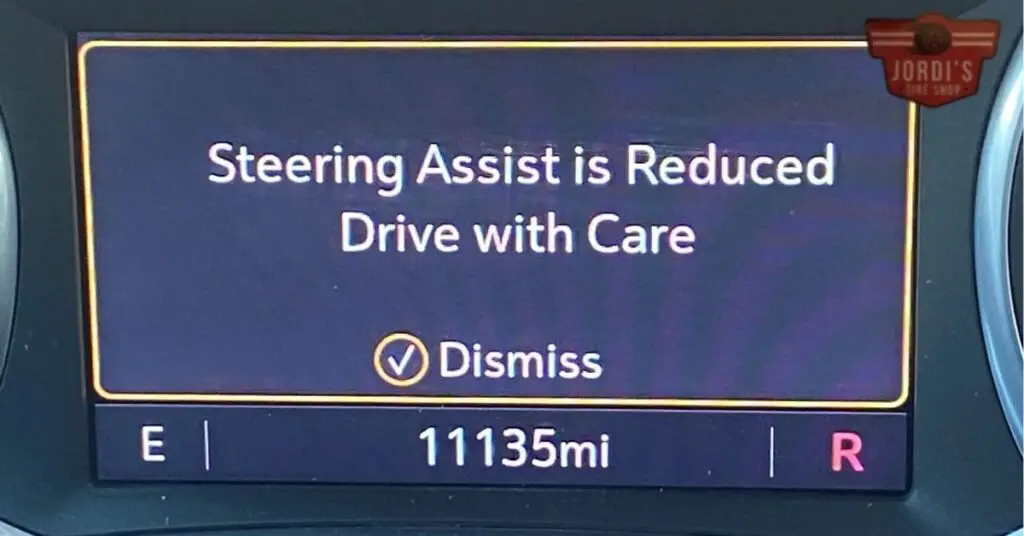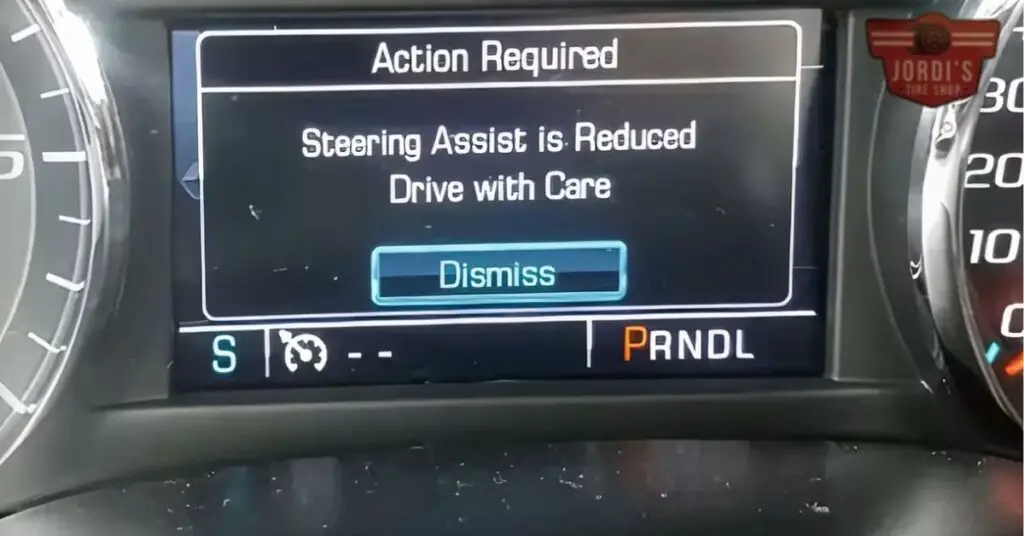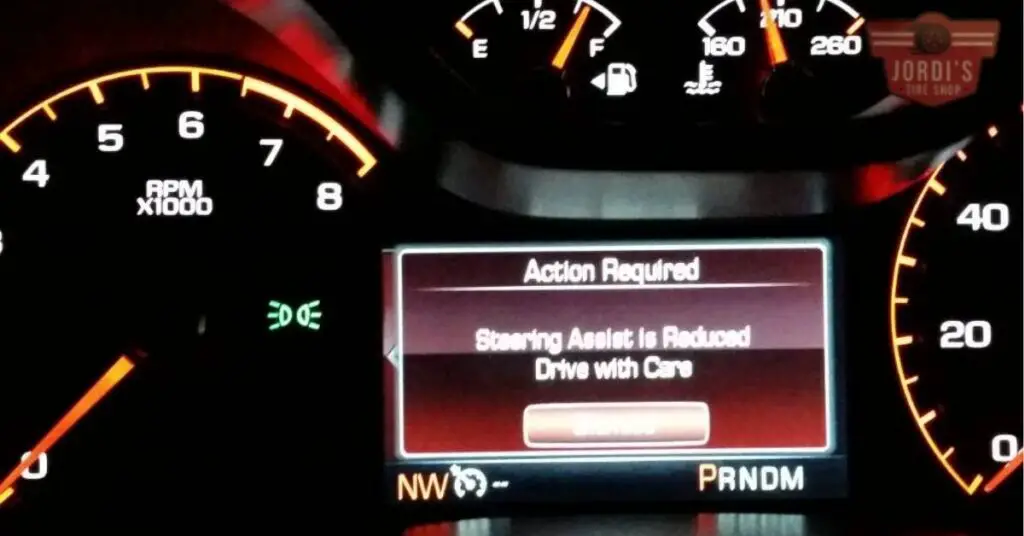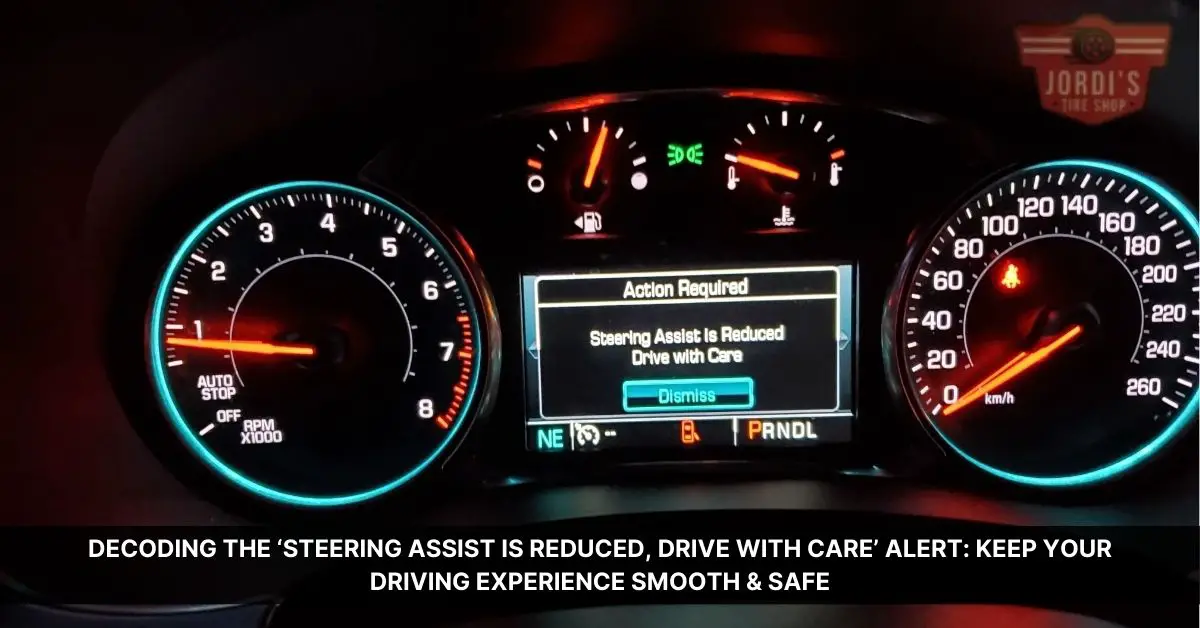Ever had your car’s dashboard flash with the message “Steering Assist is Reduced, Drive with Care”? It’s a signal that’s hard to ignore and one that can leave you puzzled. This warning is more than just a suggestion; it’s your vehicle’s way of telling you that something’s not quite right with your power steering system.
Understanding this alert and how to respond can mean the difference between a minor inconvenience and a major repair bill. So buckle up and get ready to investigate into the industry of steering systems, their potential issues, and how you can keep your ride smooth and safe.
Understanding “Steering Assist Is Reduced Drive with Care” Message

Exploring deeper into the “Steering Assist is Reduced, Drive with Care” warning message stands as an investment in your vehicle’s health. It’s also an opportunity to broaden your knowledge on car maintenance. This section aims to address specifics—what the message denotes and what elicits it.
What Does it Mean?
The “Steering Assist Is Reduced, Drive with Care” message is akin to a red flag. It’s your car’s way of conveying an issue, essentially a cry for help from your power steering system. When this message pops up, your vehicle’s computer has detected a malfunction in the electric power steering (EPS) system. It might also indicate an internal communication problem between the computer and steering system. Regardless of the cause, the goal is to ensure your safety and prevent damage to the vehicle with this proactive alarm.
In practical terms, it implies that driving your car may take more strenuous steering effort. Until resolved, it might lead to a conspicuous loss of steering assist, or worse, the car might revert to manual steering. Both scenarios increase the risk of traffic accidents, particularly at low speeds.
Causes of “Steering Assist Is Reduced Drive with Care” Message
Exploring the potential triggers of the “Steering Assist Is Reduced, Drive with Care” message helps simplify the complex diagram of issues that could besiege your vehicle’s steering system. Here are a few probable causes:
- Faulty Power Steering Control Module (PSCM): PSCM acts as the brain of the EPS system. An ineffective or damaged PSCM interferes with the electric steering assist, eliciting the warning message.
- Substandard Battery Voltage: An EPS system requires a steady power supply. A fluctuating or insufficient voltage from the battery could trigger the alert.
- Corroded or Damaged Connectors and Wiring: The sophistication of EPS systems comes with delicate wiring and connectors. Corrosion or damage in these integral parts may cause the system to signal a warning.
- Failed Steering Gear: A critical component of the steering system, a malfunction in the steering gear, can also prompt the “Steering Assist Is Reduced, Drive with Care” message.
Identifying these causes early mitigates both risks and potential repair costs. With each drive, it’s paramount to heed your vehicle’s communication for a safer, smoother journey.
Implications of Ignoring the “Steering Assist Is Reduced” Warning

Ignoring this essential dashboard warning has ramifications. Neglecting the “Steering Assist is Reduced” sign can lead to devastating consequences beyond a less comfortable drive.
Potential Risks and Problems
Jump-start your car, discover low responsiveness in the steering wheel. That’s your first red flag. A direct indicator of this warning’s importance. A driver runs the risk of losing control over their vehicle, as the malfunctioning of the EPS system makes the steering wheel heavy. It’s not a simple case of needing more elbow grease – such a condition exponentially increases the chances of accidents, particularly when driving at low speeds or through tight turns.
Worsening vehicle damage is inevitable if you treat the problem lightly. A compromised EPS system increases the strain on other parts of the motor, accelerating wear and tear. From overheating the engine to damaging the tires, the risks are many, each brewing its own set of problems.
Long-term Consequences
Consider then the long-game, the subtle deterioration over time due to persisting with a faulty steering assist feature. A dodgy EPS system puts the overall functioning of your vehicle on the line, escalating operating costs and causing the vehicle’s value to depreciate faster than standard.
Worse still, driving on a faulty EPS system for extended periods means gambling with your safety and those around you. The heavy steering wheel can cause strenuous strains in your arm, leading to potential health problems.
Also, the high repair costs cannot be neglected. A failed power steering control module or steering gear aren’t easy on the wallet. Early detection and repair can save these expenses. Neglect, conversely, lets the bill pile up. Ensure that this warning doesn’t go unnoticed. It’s not just for your vehicle’s sake, but also for your safety, your finances, and your peace of mind.
Common Solutions to Overcome “Steering Assist Is Reduced Drive with Care”
Understanding how to remedy “Steering Assist is Reduced, Drive with Care” issue holds valuable benefits for your vehicle’s longevity and your safety. Let’s examine two efficient answers: Do-It-Yourself (DIY) techniques, and seeking professional help.
DIY Techniques to Fix the Issue
DIY methods serve as great initial steps to tackle the issue, before seeking professional assistance. They’re generally cost-effective and less time-consuming answers. Here are a few techniques you might consider:
- Battery Examination: Ordinary checks on your battery voltage can prevent a power malfunction in your EPS system. Replace the battery if it’s found to be below standard threshold.
- Inspect Connectors and Wiring: A regular examination of connectors and wires can prevent corrosion or damage from crippling your EPS system. Be on the lookout for visible damages or exposed wires.
- Check the Power Steering Control Module (PSCM): Regularly inspect your PSCM for faults. A dysfunctional PSCM can trigger the EPS warning. If defects are detected, replacement becomes a vital option.
Remember, these preliminary measures might not fully fix the issue, but they play a key role in preventing it from escalating. If these initial techniques fail to rectify the problem, matriculate towards professional help.
Professional Help for the Issue
Professionals have the necessary skills and equipment to diagnose and fix the problem accurately. Here are a few advantages of seeking professional help:
- Expert Diagnosis: A professional mechanic can use advanced diagnostic tools to pinpoint the exact fault in your EPS system.
- High-Quality Repairs: Certified professionals guarantee high-quality repair works, reducing the risk of future breakdowns.
- Guidance and Advice: A professional mechanic not only fixes your issue but also offers useful advice to prevent a reoccurrence.
If the EPS system warning persists after exploring DIY techniques, it’s highly recommended to seek professional help. Although this might incur some expenses initially, it circumvents costly damages in the long run, and ensures a safer driving experience.
Safety Precautions when Dealing with a Reduced Steering Assist

Understanding how to navigate a vehicle when the “Steering Assist is Reduced” warning pops up is critical. Here are some precautions you can take to ensure a safe driving experience.
Driving Tactics under Reduced Steering Assist
Under this circumstance, it’s best to adopt certain driving habits. Firstly, make frequent stops. Even though the fact that frequent stops can increase travel time, they allow the power steering system to cool down. Secondly, avoid sharp turns. Sudden or severe turns put extra strain on the power steering system, so it’s best to take turns slowly and gently. Finally, minimize the use of steering wheel adjustments. Try limit your usage of the steering wheel’s tilt and telescoping adjustments as they also put stress on the vehicle’s power steering system.
Necessary Checks before Hitting the Road
Conducting regular checks is another necessary precautionary measure. For one, inspect the level of power steering fluid regularly. In many cases, reduced steering assist is linked to low power steering fluid levels. Also, check for any apparent damages such as visible leaks from the system or busted connectors. On top of this, regular battery checks are essential as insufficient voltage can impede the power steering module’s operation. Finally, keep an eye on your vehicle’s Power Steering Control Module (PSCM). This acts as the brain of the power steering system, any malfunction here could affect the entire system. If any issues are found during these checks, it’s advisable to seek professional assistance as soon as possible.
Review of Car Models Prone to “Steering Assist Is Reduced Drive with Care” Issues
This section delves into several car models that commonly exhibit the “Steering Assist Is Reduced Drive with Care” warning. Centering upon prominent brands such as Dodge and Ford, it provides an understanding of the related issues prevalent in exact models.
Dodge Vehicles and Steering Assist Issues
Dodge vehicles, known for their robust character, aren’t exempt from the “Steering assist is reduced” issue. Certain models have reported instances where drivers faced unexpected steering problems signified by this warning. An iconic example is the 2015 Dodge Journey. Drivers of this particular model, according to various reports, have grappled with steering complications, sometimes merely months after purchase.
The main culprit typically appears to be a failure of the power steering pump. Another Dodge model, the Grand Caravan, has also shown vulnerability to similar issues. Most owners reported problems around 110,000 miles, signaling a pattern potentially related to vehicle longevity.
Ford Models and Steering Assist Problems
Ford, as another major player in the automobile industry, isn’t immune to the “Steering Assist is Reduced” warning. Notably, Ford Escape, particularly the 2010 model, faces frequent criticism for recurrent power steering failure, generally surfacing around 106,000 miles.
The Ford Fusion isn’t an exception either. Reports show that the 2012 model has a important number of complaints around the 80,000 miles mark, indicating early onset of steering problems linked to worn-out components or system defects.
Noticeable in both Dodge and Ford models, the emergence of the “Steering Assist is Reduced Drive with Care” issue appears proportional to vehicle usage. Regular maintenance checks and prompt response to such warnings is always advised for optimal performance and extended vehicle lifespan.
Tips to Prevent “Steering Assist Is Reduced Drive with Care” Message

Maintaining your vehicle’s power steering system isn’t just about repair and recovery, but prevention too. Remember, proper care and routine inspection go a long way in avoiding the “Steering Assist is Reduced Drive with Care” warning message, ensuring a comfortable and safe driving experience. Here are some reliable measures you can take:
Regular Checkups: Make sure to involve your car in periodic service and maintenance visits to professional mechanics. In these sessions, crucial aspects of your vehicle, including the Electric Power Steering (EPS) system, Power Steering Control Module (PSCM), battery, and wiring, get checked for potential problems.
Caring for the Battery: Remember, the EPS system depends heavily on your car’s battery. So, ensure that your vehicle’s battery is in optimal condition. Consider replacing it if it is old or showing signs of malfunction. For example, dimming headlights are often indicative of a failing battery.
Monitor your PSCM: The Power Steering Control Module plays a core role in your car’s steering assistance. If it’s malfunctioning, you could experience challenges with turning or controlling your vehicle. You can check for exact trouble codes related to the PSCM through an OBD2 scanner.
Paying Attention to Wires and Connectors: Serious issues can arise from mundane causes like rust, corrosion, or damaged connectors and wires. Regularly inspect these components, particularly in older vehicles or in harsh driving conditions. Ensure the links between your car’s computer and the steering system are secure.
Awareness of Vehicle’s Pattern: Since some model-exact issues are reported, understand your vehicle’s common problems related to steering systems. For instance, the 2015 Dodge Journey or the 2012 Ford Fusion can exhibit power steering difficulties at certain mileage points.
Conclusion
Understanding the “Steering Assist is Reduced, Drive with Care” alert is crucial in maintaining your vehicle’s performance and ensuring your safety on the road. It’s a call to action that requires prompt attention and appropriate response. Remember, early detection of potential issues like a faulty PSCM, inadequate battery voltage, or damaged connectors can help you avoid hefty repair costs and reduce accident risks.
Ignoring this warning can lead to severe consequences, from loss of vehicle control to escalating repair costs. So, don’t overlook the importance of regular vehicle checks and maintenance. Whether it’s a DIY method or consulting a professional mechanic, addressing the issue early on can save you a lot of trouble down the road.
Also, adopting safe driving habits when the warning appears can mitigate strain on your power steering system. Regularly inspect power steering fluid levels, check for visible damages, and monitor your battery and PSCM for any issues.
Finally, staying aware of common steering issues in exact car models, like Dodge and Ford, can help you anticipate potential problems and take preventive measures. Remember, a well-maintained vehicle not only ensures a smoother drive but also extends the lifespan of your car. So, drive with care and keep your vehicle in check.
What does the “Steering Assist is Reduced, Drive with Care” message mean?
The warning “Steering Assist is Reduced, Drive with Care” on a car’s dashboard signals a problem with the electric power steering (EPS) system or a communication issue between the car’s computer and steering system. This means your car may require more effort to steer, particularly at low speeds, posing a potential danger.
What could cause the “Steering Assist is Reduced” warning to appear?
Potential causes for this warning include a faulty Power Steering Control Module (PSCM), inadequate battery voltage, corroded or damaged connectors and wiring, and a failed steering gear.
What are the dangers of ignoring the “Steering Assist is Reduced” warning?
Ignoring this message could lead to severe consequences, including loss of vehicle control and increased risk of accidents due to heavy steering. A faulty EPS system can cause additional damages, such as overheating, tire damage, and increased repair costs.
What are some solutions to address the “Steering Assist is Reduced” warning?
Basic DIY checks include assessing battery voltage, inspecting connectors and wiring for damage, and checking the PSCM for faults. However, if the problem does not resolve, consulting a professional mechanic is recommended for expert diagnosis and repair.
What precautions should be taken when driving with this warning active?
Safe driving includes making frequent stops to let the steering system cool, avoiding sharp turns, minimizing steering wheel adjustments, and regularly inspecting power steering fluid levels, visible damages, leaks, battery, and PSCM for any issues.
Are certain car models more prone to the “Steering Assist is Reduced” warning?
Yes, certain Dodge and Ford models, like the 2015 Dodge Journey, the Grand Caravan, the 2010 Ford Escape, and the 2012 Ford Fusion, have shown a pattern of steering issues often linked to power steering pump failures.
How can I prevent the “Steering Assist is Reduced” warning?
Preventive measures include regular mechanical checkups of the EPS system, PSCM, battery, and wiring, maintaining a healthy battery, and monitoring your car for common steering issues, particularly for specific car models known for steering problems.
Related Posts:
- Preventing Engine Coolant Overheating: A Comprehensive Guide for Ford Fusion Owners
- Decoding the Honda Smart Key System Warning Light: A Complete Guide for US Drivers
- Cracking the Code: A Comprehensive Guide to Your Chrysler’s Auto Start-Stop Warning Light
- Demystifying the Auto Start-Stop Warning Light: A Comprehensive Guide for Modern Drivers
- Understanding & Fixing Audi Drive System Malfunction: A Comprehensive Guide for US Audi Owners
- Decoding the ‘Steering Assist Is Reduced, Drive with Care’ Alert: Keep Your Driving Experience Smooth & Safe
- Revolutionizing Road Safety: A Deep Dive into Hyundai’s Check Forward Safety System
- Experiencing Toyota ICS Malfunctions? Discover Common Causes and Effective Solutions
- Demystifying the ‘ASC System Service Required’ Warning: Your Go-To Guide for a Smoother Ride
- Troubleshooting Ford Rear Belt Monitor Faults: A Comprehensive Guide

